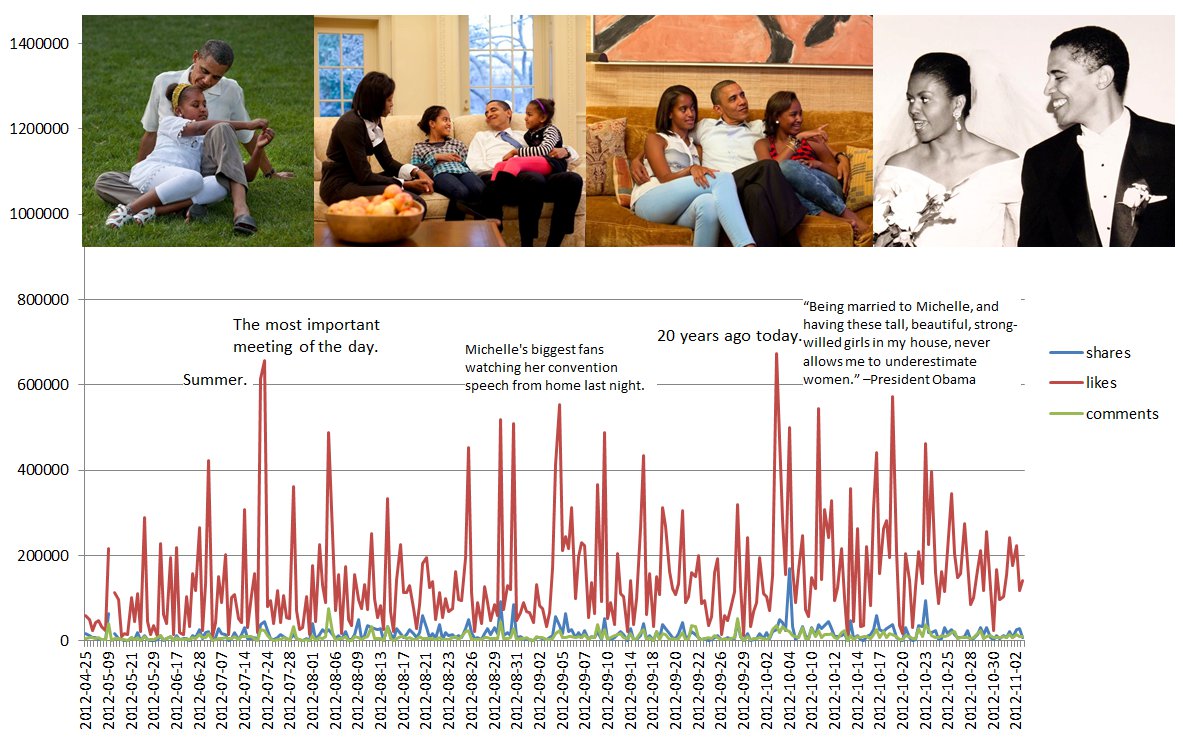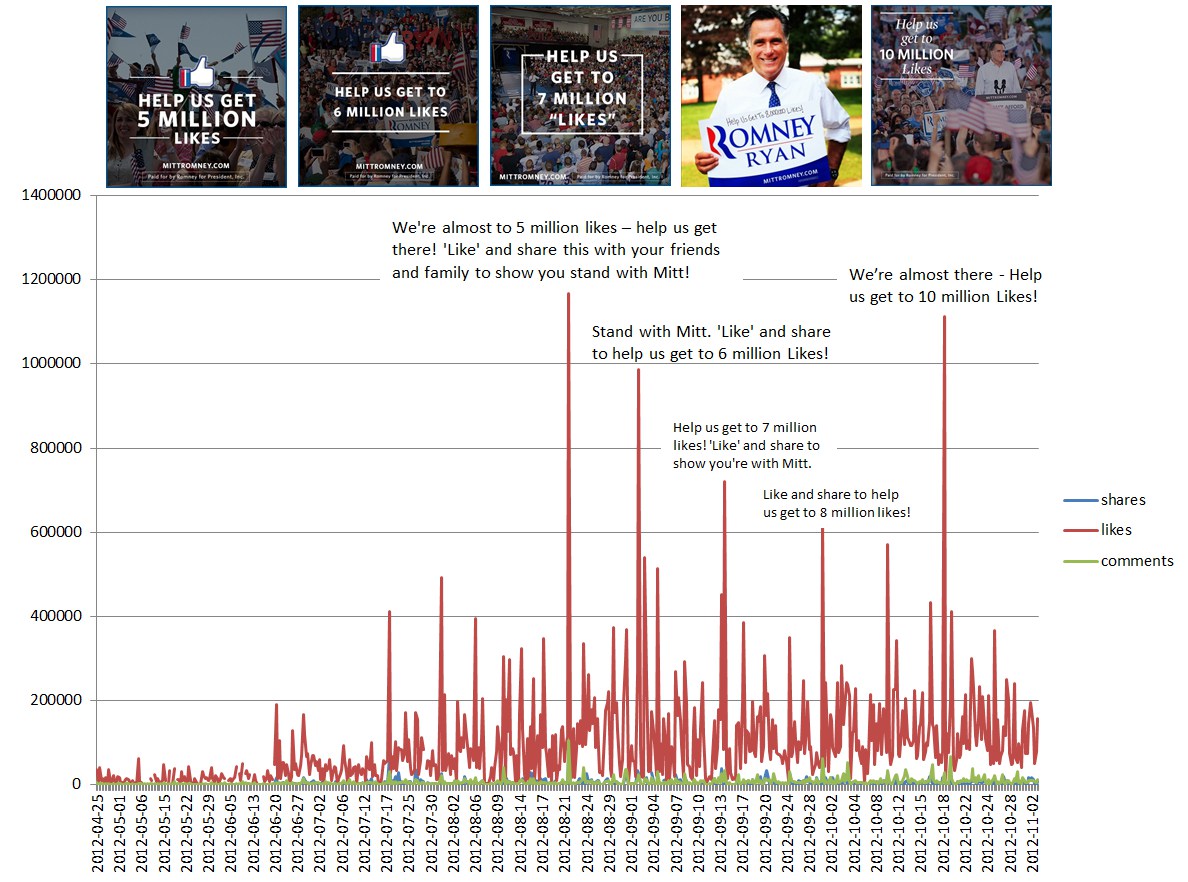The pundits don’t have full vote tallies to parse yet, but on the eve of Election 2012, there’s a plethora of data out there on how well Barack Obama and Mitt Romney have executed their communications strategies. The latest comes from a Washington researcher who’s parsed the candidates’ use of Facebook. His findings: Obama supporters love Michelle and the kids, while Romney supporters respond to direct requests for action.
American University communications professor Deen Freelon (husband of MoJo reporter Kate Sheppard) scraped both candidates’ official Facebook accounts for all the public comments posted to their walls since the Republican Party announced its support for Romney. “While doing so, I noticed some clear patterns in the kinds of content each group of followers showed most interest in,” Freelon wrote Sunday on his blog. “By charting the numbers of likes, shares, and comments for each message during the aforementioned time period, we can get a sense of when attention spiked and how much.”
When he looked at Team Obama’s five most-like posts, here’s what he found (click the image to embiggen):
The top five moments have nothing to do with politics. They’re generic family snapshots in the Rockwell mold, Freelon notes: “The wholesome sentiments these shots convey couldn’t be farther from the knock-down drag-out negativity flooding the airwaves and the Internet throughout the timeframe, which may explain why they were so popular among Obama fans.”
That represents a sharp contrast with the same chart analysis of Romney’s most-liked Facebook posts:
“All of Romney’s top five most-liked posts were direct calls to push their ‘like’ count over some numerical threshold,” Freelon writes. “Romney’s fans seem to be more goal-oriented than Obama’s: rather than reveling in idyllic family scenes, they were most interested in showing off their support for Romney to their Facebook friends.”
The upshot? “Romney’s Facebook fans were more engaged in the campaign than Obama’s, who seemed less inclined to get political,” Freelon suggests. Even though Obama’s median “likes,” “shares,” and “comments” were consistently higher than Romney’s, the Republican’s site saw higher spikes when asked to “like” a page. The question is which Facebook-commenter constituency—slow and steady, or high highs—will correlate with vote-getting on Tuesday. Stay tuned for an answer.


















